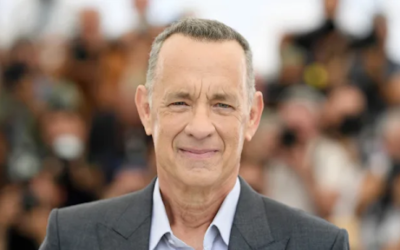Much has been made about how many of the most recent blockbuster films being released at the moment are not doing as well as the studios that made them would have liked. At best, there are films like “Black Widow” which earn solid opening weekends but struggle to keep up the momentum for one reason or another. At worst, there are films like “The Suicide Squad” that have disappointing opening weekends and also fail to build enough momentum to be considered successful. There are several external factors that are likely causing these big-budget productions to underperform or outright flop, the biggest being the continuing COVID-19 pandemic that is encouraging many people to stay in their homes and not go out to the movies (especially when many of these films are either available to stream or will be within a short period of time). Because films like “Cruella” and “Space Jam: A New Legacy” are so expensive to produce, they tend to receive the most attention whenever the revenue they take in doesn’t meet expectations. However, with all that has been said about these bigger-budget films, it’s easy to forget that even those with smaller budgets are facing similar struggles at the box office, with the most recent weekend box office being definitive proof of this dilemma.
Perhaps the most notable of the films that were most recently released in theaters to less than satisfactory results is the Hugh Jackman-starring “Reminiscence”. Although a larger production than most independent films, distributed by Warner Brothers and budgeted somewhere between $54 and $68 million, such status could not prevent the film from receiving little more than even the least desirable amount of revenue over its opening weekend, taking in just over $2 million over the three-day period. There’s no one reason why the film performed as poorly as it did – its availability on HBO Max may have allowed a majority of its viewers to see it from home for a significantly lower cost, and neither critic nor audience reception was particularly flattering (as evidenced by a 37% rating on Rotten Tomatoes and a C+ grade on Cinemascore) – but in any case, receiving only $2 million during the opening weekend is something that very few would desire, making the situation surrounding “Reminiscence” all the more troubling.
While other films that were released over the weekend fared slightly better, even they are considered to be underperformers. Taking in around $3 million each over the weekend were “The Night House”, a horror film starring Rebecca Hall, and “The Protege”, an action film starring Michael Keaton, Samuel L. Jackson, and Maggie Q. These totals were high enough to allow the two films to rank higher than “Reminiscence” on the box office charts, but the failure for either to get anywhere near a double-digit million total is causing the industry to see these films as disappointments. Even if their budgets are smaller than that of “Reminiscence” (budgetary data is currently unavailable for either film), it’s questionable whether or not the films will be able to break even by this point.
Although the pandemic and streaming availability have certainly played some part in preventing these films from making as much as they probably should have, it’s also possible that their target demographics may have also had some influence. This is what has been suggested in a recent Variety article that suggests that films that appeal mainly toward an older audience aren’t able to fare as well at the box office as those with more wide-reaching target audiences, and that the pandemic is only making that situation even more prominent. This is what Box Office Pro analyst Shawn Robbins believes, claiming that “certain films without an ‘all-audience’ angle and aimed narrowly at adults over a certain age are in a more challenging spot to succeed commercially until those moviegoers are more comfortable returning to public lifestyles.”
Given that people (primarily males) between the ages of 25 and 35 tend to be the most consistent moviegoers, it’s no surprise that the better-performing films of the past year tend to appeal predominantly toward this demographic than an older one. Why are audiences of an older age group not as willing to go out to the movies compared to those that are younger? According to Franchise Entertainment Research head David A. Gross, the reason seems to be a combination of health concerns and affordability. “Older moviegoers — and by ‘older,’ we’re talking about 35 through baby-boomers — have the most to be concerned about their health, so for now they’re erring on the safe side,” Gross argues. “They’re also more affluent than younger moviegoers, so they have the most comfortable and high-quality home entertainment options. It raises the bar for movies that are less than must-see… why take a risk when it’s easy to stay home and watch something good?”
In the case of “Reminiscence”, opting to stay home seems to be an ideal option for those curious to see the film. Given the less than stellar reception it received from audiences and critics, it would make sense that the majority of its viewers would not think of the film as worthy of a theatrical viewing and instead experience it from the comfort of their homes. With that said, would the number of people watching the film on HBO Max translate into a much higher box office intake if they had all chosen to see the film in theaters? At the moment, Warner Brothers has yet to reveal the exact number of people who had watched “Reminiscence” on HBO Max over the weekend, although some studio executives have suggested that the film’s streaming metrics aren’t too far off from its box office. If that’s true, then the film probably would’ve underperformed even if wasn’t accessible via streaming.
Unfortunately, as long as the pandemic continues to spread and create new variants, there’s a very strong chance that this story will repeat itself with several other smaller films set to come out over the next few months. Even those these films may not cost as much as their blockbuster counterparts, they still deserve to have an audience and success, and it’s a shame that the current state of the world is making it incredibly difficult for them to do so.




